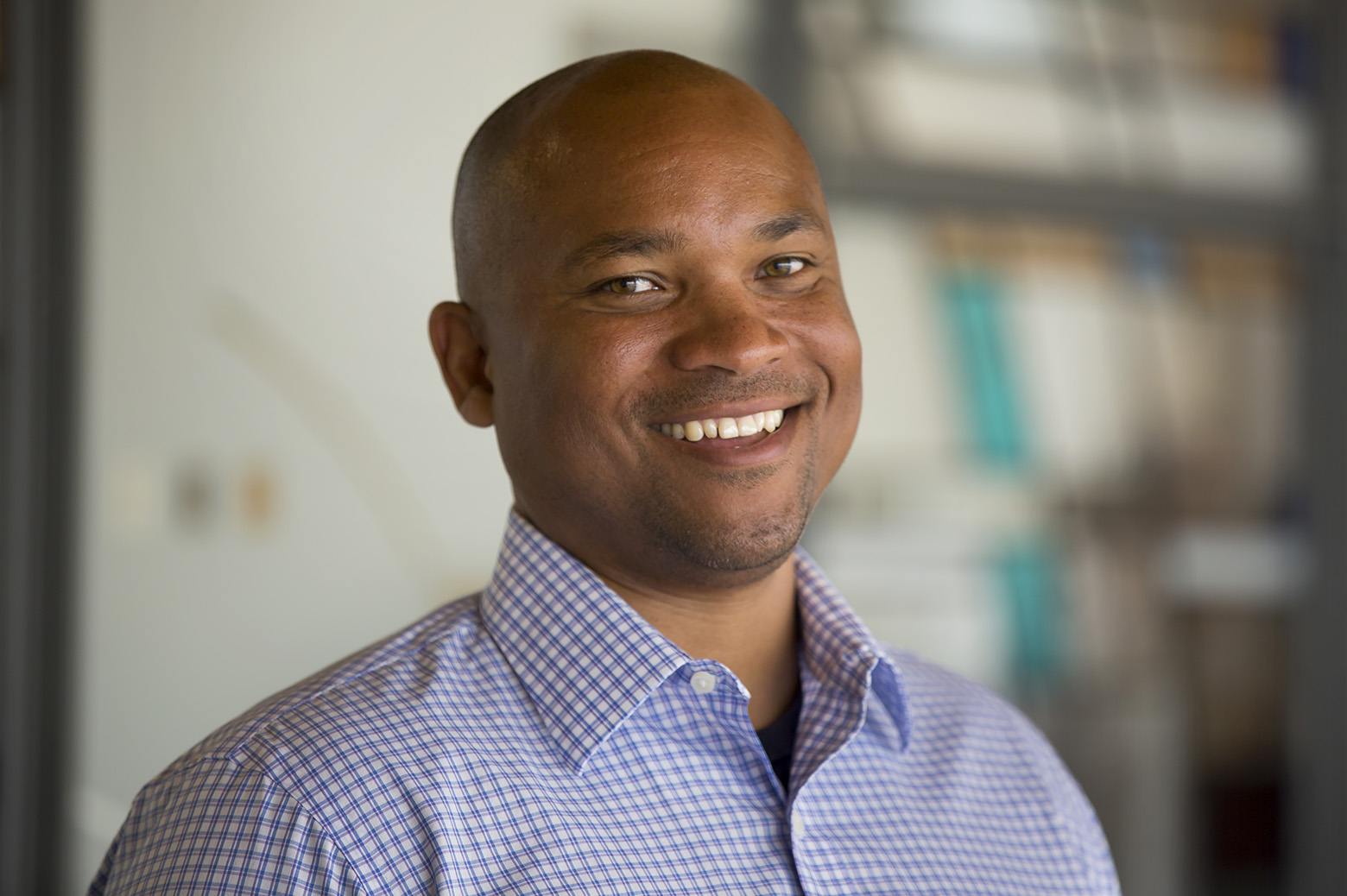Chad Jenkins named new council member for CRA Computing Community Consortium
Jenkins has been appointed as one of seven new members on the Computing Community Consortium (CCC) Council, which is affiliated with the Computing Research Association (CRA). His term begins July 1.

 Enlarge
Enlarge
Prof. Chad Jenkins has been appointed as one of seven new members on the Computing Community Consortium (CCC) Council, which is affiliated with the Computing Research Association (CRA).
The mission of the CCC is to catalyze the computing research community and enable the pursuit of innovative, high-impact research. CCC conducts activities that strengthen the computing research community, articulate compelling research visions, and align those visions with pressing national and global challenges. CCC communicates the importance of those visions to policymakers, government and industry stakeholders, the public, and the research community itself.
In addition to Jenkins, the appointees include Sujata Banerjee, VMware; Elisa Bertino, Purdue University; Tom Conte, Georgia Tech; Maria Gini, University of Minnesota; Melanie Mitchell, Portland State University; and Katie Siek, Indiana University.
Beginning July 1, the new members will each serve three-year terms. The CCC Council is comprised of 20 members who have expertise in diverse areas of computing. They are instrumental in leading CCC’s visioning programs, which help catalyze and enable ideas for future computing research.
Jenkins is a roboticist focusing on robot learning and human-robot interaction. His research explores methods that enable robots to learn from human demonstration in complex environments. In recent years, his work also explored the use of robot systems for assisting aging populations and people with disabilities. His work has been supported through a number of prestigious awards, including aPECASE award, an NSF CAREER Award, an ONR Young Investigator Award, and a Sloan Research Fellowship. He was named one of Popular Science’s “Brilliant 10” in 2011.
Jenkins has a prolific record of service, both within and beyond the University. In 2017, he became the inaugural Editor-in-Chief for the ACM Transactions on Human-Robot Interaction, the first robotics journal to be published by the Association for Computing Machinery. In 2018, he became the first male faculty member on the board of the Computing Research Association’s Committee on the Status of Women in Computing Research (CRA-W). He also serves as a Co-Program Chair for the CRA Distributed Research Experiences for Undergraduates (DREU) program and member of the Steering Committee for the CRA Grad Cohort for Underrepresented Minorities and People with Disabilities. He is serving as a member of the Defense Science Study Group for 2017-2018.
Jenkins recently concluded serving as Chair of the College of Engineering Dean’s Advisory Committee for Faculty of Color. He is a member of the University of Michigan Robotics Institute Executive Committee and the University of Michigan CSE Graduate Committee. He has previously served on the University of Michigan Robotics Day Organizing Committee and as Chair of the University of Michigan CSE Safety Committee. He won the 2017-2018 Trudy Huebner Service Excellence Award from the College of Engineering.
Jenkins strives to improve the state of diversity in computing and robotics with the goal of realizing excellence in scholarship and equal opportunity for all. For the past four years, he has led students from underrepresented backgrounds to participate in the Tapia Conference for the Celebration of Diversity in Computing. He is an active mentor of undergraduate projects, including hosting a large number of summer interns from diverse backgrounds (including from the U-M SROP program) and independent study projects. He also formally and informally provides advising, mentorship, and guidance to students from all walks of life. His research group has grown rapidly during his time at Michigan with students from across our greater global community.
In addition to his mentorship efforts, Jenkins provides a guiding example of leadership in society for advancing robotics and computing and its accessibility to everyone. The most visible example is the TED talk he gave with Henry Evans, who has quadriplegia and the inability to speak, which has been viewed over 1 million times. This talk inspired many people with disabilities to explore how robotics can help people experience the world in new ways. He has also given numerous keynote talks to audiences of secondary and community college educators, industry leaders, churches, and diverse groups of emerging scholars in computing.
 MENU
MENU